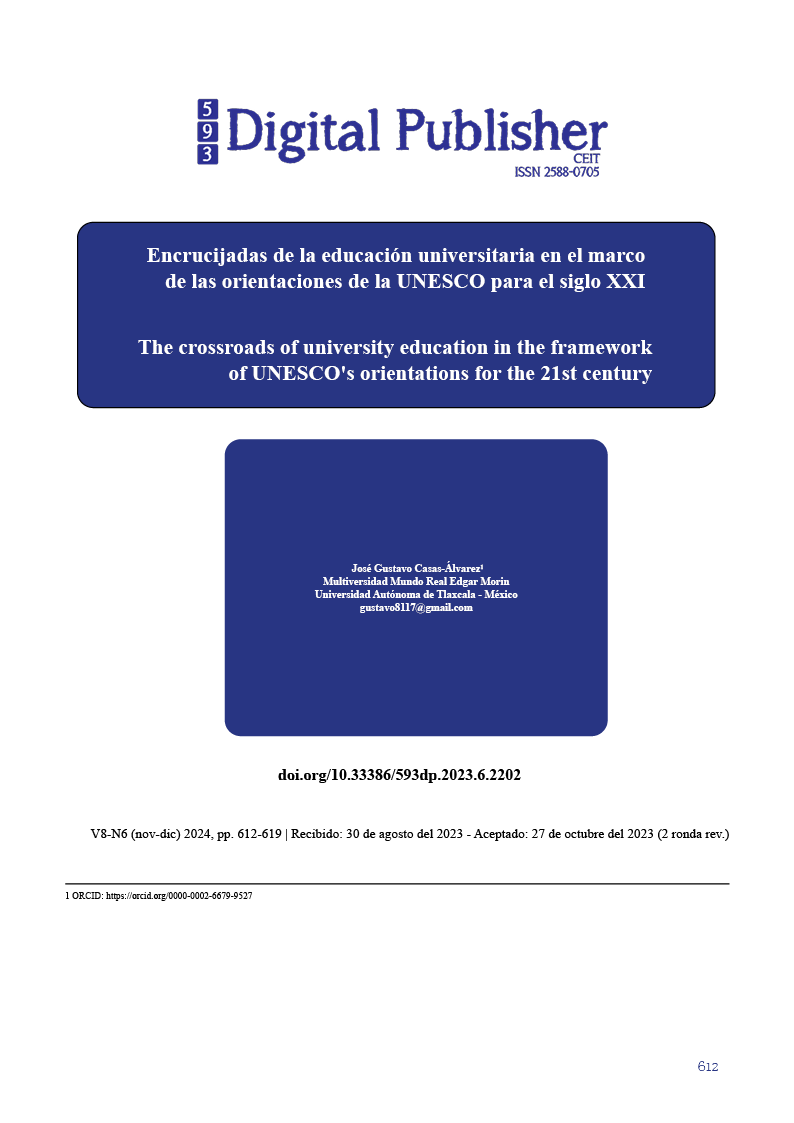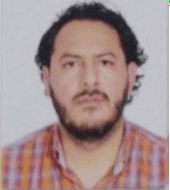The crossroads of university education in the framework of UNESCO's orientations for the 21st century
Main Article Content
Abstract
The work axes that UNESCO has outlined for universities are addressed, with the intention of identifying both the links and debates around the training scenarios for the 21st century. This is particularly relevant in a context that led practically all the actors involved in education to rethink the place of presence in institutions, in general, but in face-to-face education in particular, as an effect of the COVID 19 pandemic. This forced to rethink the relevance and meanings of educational models: digital, distance and hybrid. Its highlights a strong relationship between UNESCO and the efficient and effective use of ICT in education in general, with particular interest in universities. This opens up important debates about the orientation of university education, for example: towards information, knowledge or learning societies; towards the objectives for sustainable development; towards innovation cycles; towards the economic-ecological transition; as well as anthropological and civilizational challenges, such as transhumanism and technological ethics with the advent of the so-called 4.0 revolution.
Downloads
Article Details

This work is licensed under a Creative Commons Attribution-NonCommercial-ShareAlike 4.0 International License.
1. Derechos de autor
Las obras que se publican en 593 Digital Publisher CEIT están sujetas a los siguientes términos:
1.1. 593 Digital Publisher CEIT, conserva los derechos patrimoniales (copyright) de las obras publicadas, favorece y permite la reutilización de las mismas bajo la licencia Licencia Creative Commons 4.0 de Reconocimiento-NoComercial-CompartirIgual 4.0, por lo cual se pueden copiar, usar, difundir, transmitir y exponer públicamente, siempre que:
1.1.a. Se cite la autoría y fuente original de su publicación (revista, editorial, URL).
1.1.b. No se usen para fines comerciales u onerosos.
1.1.c. Se mencione la existencia y especificaciones de esta licencia de uso.
References
Alonso, A. y Arzoz, I. (2003). Carta al homo ciberneticus: una manual de ciencia, tecnología y sociedad activista para el siglo XXI. EDAF.
Castells, M. (2009). Comunicación y poder. Alianza editorial.
Compaine, B. (2001). The Digital Divide. Facing a crisis or creating a myth? MIT press.
Fernández, R. (2011). El antropoceno: la expansión del capitalismo global choca con la biosfera. Virus.
Habermas, J. (2008). El derecho internacional en la transición hacia el escenario posnacional. Katz editores.
Hobsbawm, E. (2008). Después del siglo XX: un mundo en transición. América Latina: ¿integración o fragmentación?, 29-50. Grupo Mayan. En: chrome-extension://efaidnbmnnnibpcajpcglclefindmkaj/https://www.fundacionvidanta.org/docs/03-After-the-XXth-Century-Hobsbawm.pdf
Mattelart, A. (2002). Historia de la sociedad de la información. Paidós.
Morin, E. e Kern, A. (1993). Tierra Patria. Kairós.
Morin, E. (2011). La vía. Paidós.
Morin, E. y Delgado C. (2016). Reinventar la educación. MMREM.
Stiglitz, J. y Greenwald, B. (2015). La creación de una sociedad del aprendizaje. Crítica.
ONU (2008). Medición de las tecnología de la información y la comunicación (tic) en educación – Manula de usuario.
UNESCO (2005). Hacia las sociedades del conocimiento.
UNESCO (2018).
UNESCO (2020). La educación en tiempos de la pandemia de Covid 19.
UNESCO, (2021). Reimaginar un nuevo contrato juntos nuestros futuros. Un nuevo contrato social para la educación.
UNESCO (2030). Políticas públicas para la innovación 4.0


